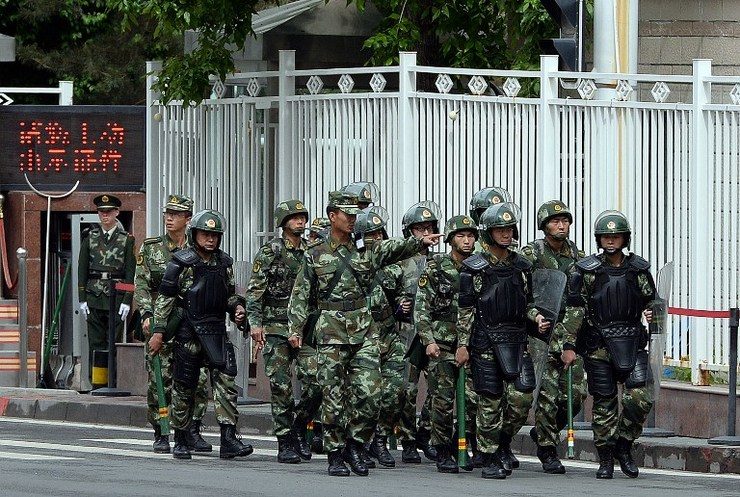SUMMARY
This is AI generated summarization, which may have errors. For context, always refer to the full article.

BEIJING, China – Authorities in the capital of the mainly Muslim Uighur homeland of Xinjiang voted to ban the wearing of burqas in public, media said Thursday, December 11, as China confronts unrest with tough measures that critics have labelled discriminatory.
Hundreds have died in ethnic clashes across the restive far western region in recent months, with Beijing vowing to “strike hard” against violence.
The local legislature of Urumqi on Wednesday “considered and adopted ‘Regulations for the banning of wearing of burqas in public areas in Urumqi’,” the Sina web news portal said.
The measure will next go to the regional legislature to “examine and then to implement it,” the report added.
China has previously launched drives to discourage women from covering their faces, and security officials often log details of those wearing burqas, an Islamic garment that covers the eyes as well as the whole face and body.
A “Project Beauty” campaign in the predominantly Uighur city of Kashgar saw a publicity offensive encouraging women not to wear traditional Islamic clothing.
Authorities in another Xinjiang city, Karamay, in August banned people wearing hijabs, niqabs, burqas, or clothing with the Islamic star and crescent symbol from local buses.
Rights groups say that harsh police treatment of Uighurs and campaigns against some religious practices has stoked violence.
Beijing has blamed “separatists” from Xinjiang for a wave of deadly incidents in and beyond the region, which have been labelled “terrorism” by Beijing.
Several hundred people have died this year, and Xinjiang witnessed its bloodiest incident since 2009 when 37 civilians and 59 “terrorists” were killed in an attack on a police station and government offices in Shache county, also known as Yarkand, in July.
Five years ago, rioting involving Uighurs and members of China’s Han majority left around 200 people dead in Urumqi.
China defends its policies in Xinjiang, arguing that it has boosted economic development in the area and that it upholds minority and religious rights in a country with 56 recognised ethnic groups. – Rappler.com
Add a comment
How does this make you feel?
There are no comments yet. Add your comment to start the conversation.